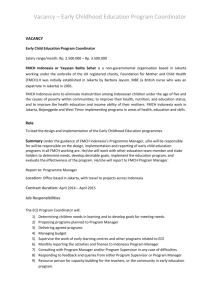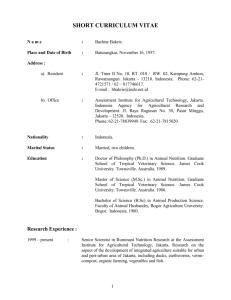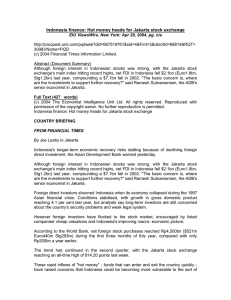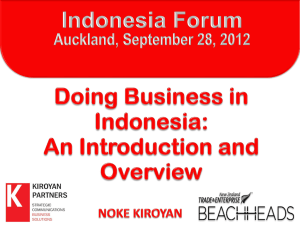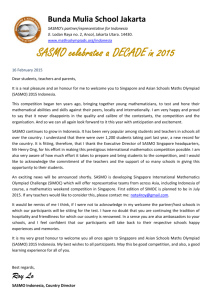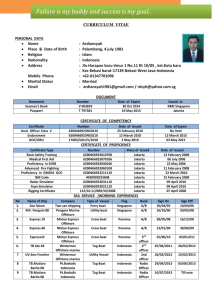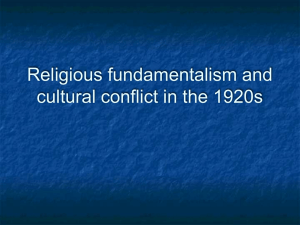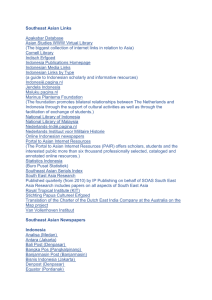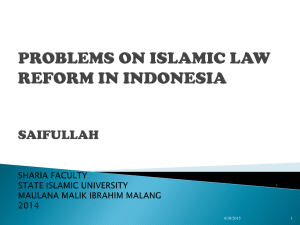here - Indonesia Etc
advertisement
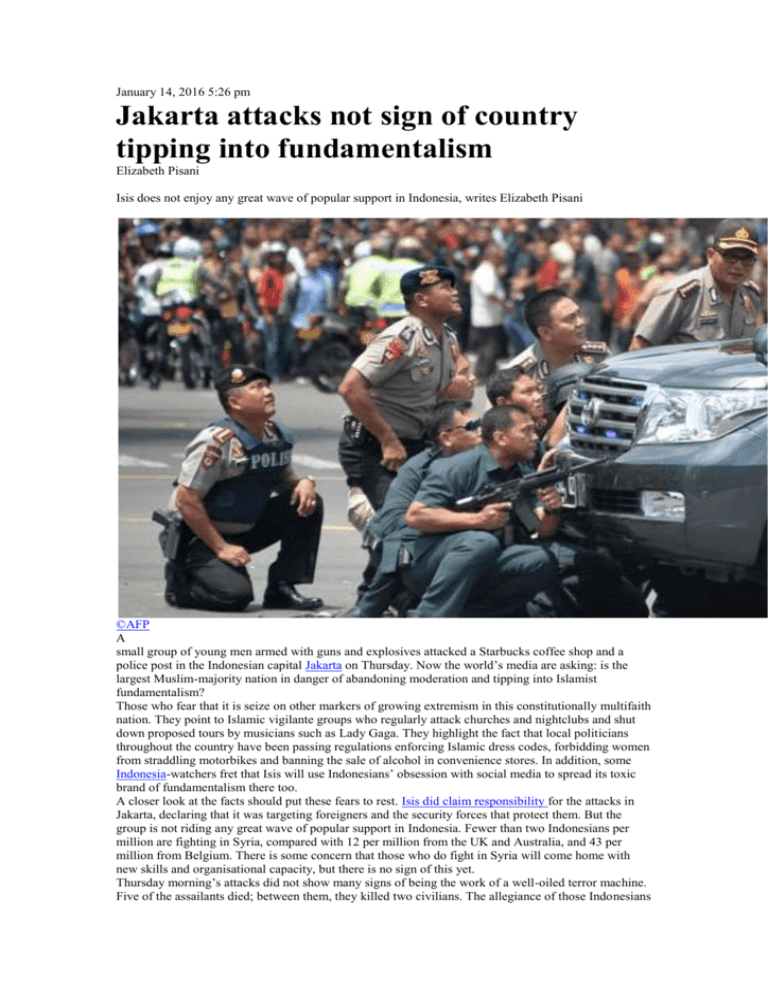
January 14, 2016 5:26 pm Jakarta attacks not sign of country tipping into fundamentalism Elizabeth Pisani Isis does not enjoy any great wave of popular support in Indonesia, writes Elizabeth Pisani ©AFP A small group of young men armed with guns and explosives attacked a Starbucks coffee shop and a police post in the Indonesian capital Jakarta on Thursday. Now the world’s media are asking: is the largest Muslim-majority nation in danger of abandoning moderation and tipping into Islamist fundamentalism? Those who fear that it is seize on other markers of growing extremism in this constitutionally multifaith nation. They point to Islamic vigilante groups who regularly attack churches and nightclubs and shut down proposed tours by musicians such as Lady Gaga. They highlight the fact that local politicians throughout the country have been passing regulations enforcing Islamic dress codes, forbidding women from straddling motorbikes and banning the sale of alcohol in convenience stores. In addition, some Indonesia-watchers fret that Isis will use Indonesians’ obsession with social media to spread its toxic brand of fundamentalism there too. A closer look at the facts should put these fears to rest. Isis did claim responsibility for the attacks in Jakarta, declaring that it was targeting foreigners and the security forces that protect them. But the group is not riding any great wave of popular support in Indonesia. Fewer than two Indonesians per million are fighting in Syria, compared with 12 per million from the UK and Australia, and 43 per million from Belgium. There is some concern that those who do fight in Syria will come home with new skills and organisational capacity, but there is no sign of this yet. Thursday morning’s attacks did not show many signs of being the work of a well-oiled terror machine. Five of the assailants died; between them, they killed two civilians. The allegiance of those Indonesians who do travel to Syria appears to be split: local police said the Jakarta attacks were masterminded by former prisoner Bahrun Naim, who is currently in Syria. As for social media, it appears to be as much a tool for promoting tolerance as radicalisation. Within hours of the attacks, Indonesian Twitter streams were alive with calls to a mass rally at the site of the bombings on Friday. Dress code: white. Hashtag: #KamiTidakTakut: #WeAreNotAfraid. Working with political scientist Michael Buehler, I have recently examined some of the other signs of “Islamisation” in Indonesia, notably over 400 sharia-inspired rules passed by local governments over the first decade of the country’s political decentralisation. We found three things. First, the regulations are concentrated in a few areas that have a strong history of Islamic-led rebellion — they are not spreading inexorably across the nation. Second, mapping the regulations on to the electoral cycle, we found clear signs of political opportunism. Rules that make politicians look holy are passed in campaign periods, while those that are politically unpopular but profitable (imposing zakat taxes for example) are usually passed by those who cannot seek re-election. “Sharia creep”, in other words, is driven by politics, not religious conviction. Third, we found this “fundamentalism” does not play well with the electorate. In our data, politicians who passed these regulations in their first terms were less likely to get re-elected than those who did not. Sunni Muslims are not a persecuted minority in Indonesia. No foreign power is meddling in Indonesia’s domestic politics, let alone dropping bombs on the country. It is true that a tiny number of the country’s army of poorly educated, desperately underemployed young men are attracted to the gutsand-glory narrative spun by Isis. But their discontent is based on economic rather than religious or political marginalisation. Indonesia is a vibrant democracy and its citizens are proud of their diversity and tolerance. Attacks by a handful of fanatics do not signal a country tipping into fundamentalism in Jakarta any more than they do in Paris. The writer is a visiting fellow at the Royal Netherlands Institute of Southeast Asian and Caribbean Studies and author of ‘Indonesia Etc: Exploring the Improbable Nation’
